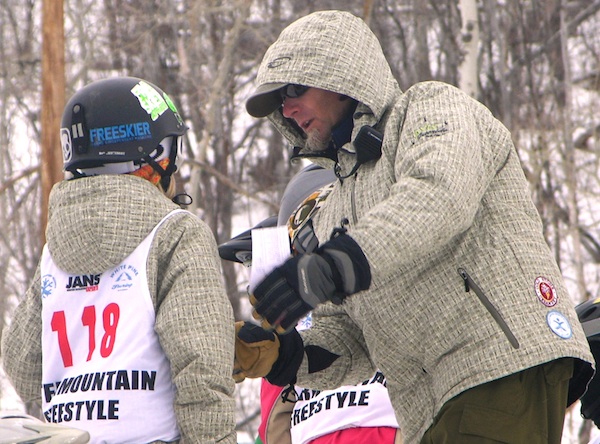Evaluate and Look Ahead

Most of the results from the season are now in the books. Successes against goals set are now being measured. It's a long season for the athletes. Their mental focus and physical energy can easily start to wane. This is an important time for coach, athlete and parent to reflect on the year and make a plan for the future. The athlete that came up short of their goals needs their coach's help to develop a plan that will drive the motivation to keep going. The athlete who had success needs guidance in setting new goals to continue to strive. An end-of-season evaluation helps facilitate this planning. It should be a cooperative process that both reflects on this season and looks ahead to next season.
A critical part of the evaluation process is completing a written evaluation form for each athlete. Here are some tips to make it happen and to make it effective.
Reflect and plan forward. Many end-of-season evaluations dwell on details of the season just completed, without or a lack of recommendations for the year ahead. What should the athlete do in the way of summer training? What program would be best suited for the athlete next season? What conditioning activities should the athlete focus on? What equipment needs should be addressed? Are there mental skills that can be worked on over the off-season? Think about how this season would have gone better if these specific questions were addressed from the season before? Make it easy for your athletes and their families to come into the next year better prepared.
Involve the athletes in the process. The evaluation form should be a record of things you have already discussed with your athletes. Their goals should be taken into account. The sidebar contains a fantastic example of a pre-evaluation letter to athletes and parents that sets the tone well for a productive season-end athlete/coach discussion. Be sure to schedule a meeting time to discuss the evaluation with your athletes, and their parents if appropriate. Make sure it is a two-way conversation. Ask the athletes the types of questions in the sample letter on the first page. This gives the athlete more ownership of the things you agree together will lead to improvement.
Use the USSA Training Systems model. Evaluations should be age-appropriate and based on the areas of emphasis highlighted in the USSA Training Systems. While the season-end evaluation may have a technical/tactical and competition focus, be sure the other areas of emphasis (conditioning, equipment selection and preparation, performance psychology) are included. Track participation in training days and competitions with the recommendations for the athlete's phase in the Training System. Use the evaluation to explain how the athlete is doing related to their long-term development and potential.
Gear toward solutions, not deficiencies. The evaluation should not just point out athlete strengths and weaknesses. It should focus on the things the athlete can do about these areas over the summer and into the next season. Critically assess where the athlete is now and show where they can go. An effective athlete evaluation should lead to increased motivation and provide a path to focus the athlete's efforts. Even if the athlete didn't meet their goals, the evaluation should give them a positive outlook moving forward.
Many athletes tend to view their ability as fixed. This means to them that their results and rankings now are likely to continue into the future, regardless of what they do. This has dangerous implications both for those with great results and those who had a rough year. For these athletes, a negative evaluation without a focus on future opportunities may be the nail in the coffin of their career; or a positive evaluation without a focus on areas to improve may be an invitation to take it easy, allowing others to catch up. In reality, the performance evaluation is simply a snapshot in time that does not in itself pre-determine future performance. This is why an evaluation that has a long-term perspective with solutions that is discussed with each athlete is so important.
As powerful as the end-of-season evaluation can be, many USSA members said they did not receive an evaluation from their coaches at the end of the season in a recent survey. Most single day ski and ride school lessons end with a simple report card showing what was worked on and areas the student can work on. It not only helps the student improve, it increases the chance they'll be back for another lesson in the future. Yet many USSA club programs that spend a full winter with their athletes neglect this important step. It comes with a cost in terms of the athletes' developmental progress and possibly in their likelihood to return for another year. By spending the time to do a quality evaluation now, you are laying the groundwork for a better season next winter.
Click here for a downloadable copy for print.
